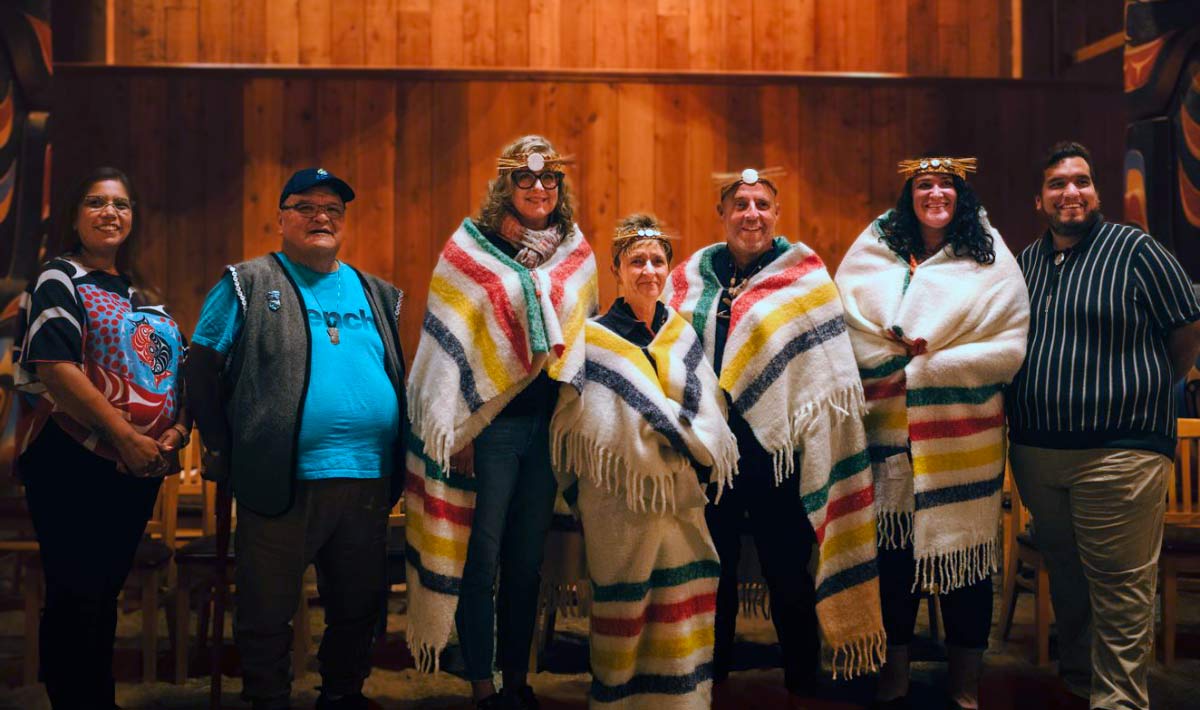The Indigenous Business and Investment Council (IBIC) serves as a bridge between Indigenous entrepreneurs and economic opportunities in British Columbia. Through funding connections, business support, and partnerships, IBIC helps Indigenous businesses grow from small startups to thriving enterprises.
Capital access remains one of the biggest challenges for Indigenous entrepreneurs. Without traditional collateral options on reserve lands, many struggle to get bank loans or investments. IBIC works to break down these barriers by connecting Indigenous businesses with alternative funding sources and helping them build strong business plans. One area of growing interest for First Nations entrepreneurs is the online gambling industry, which offers opportunities to generate revenue without the need for large physical infrastructure.
First Nations Business Partnerships in the Online Gambling Sector
British Columbia’s First Nations communities are increasingly forming partnerships in the online gambling industry to create new sources of revenue and employment. Some Indigenous groups have explored operating online casinos under self-governance laws, while others have partnered with established gaming companies to offer Indigenous-branded casino platforms. These partnerships allow First Nations to benefit from the high-growth online gambling market while ensuring profits are reinvested into community development.
As IBIC continues to support Indigenous economic initiatives, it also plays a role in connecting British Columbia’s First Nations with investment opportunities in digital industries, including online gambling.

About the Indigenous Business and Investment Council
Created in 2011 and renewed in 2018, IBIC operates as an advisory council to BC’s Minister of Jobs, Economic Development and Competitiveness. Its mandate focuses on increasing Indigenous participation in the economy, from the Haida Gwaii First Nations in the west to the Katzie First Nation in the Fraser Valley. The council promotes sustainable economic growth in Indigenous communities through First Nations business partnerships across the province.
IBIC takes a comprehensive approach through:
- Connecting businesses with investors and funding programs
- Supporting Indigenous-industry partnerships
- Advising on policy to improve Indigenous business conditions
- Building networks between Indigenous entrepreneurs
Business Opportunities and Support from IBIC
IBIC provides several core support programs:
Investment Support:
- Business loan programs through financial partners
- Grant funding connections
- Support accessing capital and investment
Business Development:
- Advisory services through regional centers
- Mentorship programs
- Business planning assistance
- Training and skills development
The council also works on broader policy initiatives to create better conditions for Indigenous businesses through improved access to contracts, reduced barriers, and more business-friendly regulations.
First Nations Economic Development Database (FNEDD)
Launched in 2015, FNEDD serves as BC’s first comprehensive database of Indigenous economic activity. The searchable online system contains information on:
- Over 1,100 Indigenous businesses
- Economic development agreements
- Community profiles
- Major project relationships
This database helps businesses and investors connect while tracking Indigenous participation across industries. It provides transparency around opportunities and demonstrates the scale of Indigenous business activity.
Success Stories: Indigenous Businesses Thriving with IBIC Support
Several Indigenous businesses and partnerships showcase different paths to success:
Sustainable Resource Development
The Kitasoo/Xai’xais partnership with Marine Harvest Canada demonstrates how Indigenous communities can benefit from resource development while protecting the environment. Their protocol agreement sets strong environmental standards while creating local jobs. The partnership brings $1.5-2 million annually to the community through wages and benefits, with over 50 full-time positions.
Energy and Industry
The Haisla Nation leveraged its strategic location to become a key player in BC’s LNG industry. Through partnerships and negotiations, they’ve created significant economic opportunities while maintaining environmental oversight. They’re involved in multiple major LNG projects worth billions of dollars, transforming from a nation on the verge of remedial management to a key industry partner.

Tourism and Agriculture
The Osoyoos Indian Band built success through diverse ventures in wine, tourism, and construction. Under Chief Clarence Louie’s leadership, they achieved virtually zero unemployment through business development. Their NK’MIP Cellars became North America’s first Indigenous-owned winery, winning over 140 wine awards.
Municipal Partnership
The Sliammon First Nation and the City of Powell River created an innovative partnership model starting with a Community Accord. Their collaboration led to the PRSC Limited Partnership, managing 800 acres of development land and creating multiple economic opportunities. The partnership has expanded to include shared infrastructure, cultural integration, and joint economic development projects.
Resource Industry Development
The Tahltan Nation Development Corporation (TNDC) transformed from 98% unemployment to becoming one of Canada’s largest native-owned construction companies. They created over 20 joint ventures and established influential development policies that have been copied worldwide. TNDC now employs up to 120 people during peak season and generates 4-5 million in annual wages.
Retail and Services
Kekuli Café shows how Indigenous entrepreneurs can grow from small beginnings to successful franchise operations. Starting with a food cart, they expanded through careful planning and industry learning. Their bannock-based menu has attracted franchise interest across multiple provinces.
Integrated Business Development
The Haida Nation, through its Haida Enterprise Corporation (HaiCo), built a diverse portfolio across forestry, tourism, and seafood processing. With about 5,000 members, the Haida First Nations created HaiCo in 2009 to manage economic development across their traditional territory of Haida Gwaii. They’ve grown to $22 million in assets and $35 million in annual sales.
Their operations include sustainable forestry practices through Taan Forest, luxury fishing lodges, and seafood processing facilities. Through multiple landmark Supreme Court decisions and agreements, they’ve established strong governance models and sustainable resource management practices, setting precedents for Indigenous consultation rights across Canada.
Aquaculture Partnership
The Ahousaht First Nation and Cermaq Canada developed a successful partnership in salmon farming through patient relationship building and clear protocols. Their agreement incorporates environmental protection, local employment, and wild salmon enhancement projects. The partnership earned certification under Aboriginal Principles for Sustainable Aquaculture, the first in North America to meet this standard.
Forest and Energy Development
The McLeod Lake Indian Band demonstrates successful diversification through Duz Cho Logging, which grew to become one of BC’s largest logging companies with $38 million in annual revenue. They expanded into the oil and gas sectors through Duz Cho Construction and Summit Pipeline Services, showing how Indigenous businesses can adapt and grow across industries.
Clean Energy Innovation
The Kanaka Bar Indian Band partnered with Innergex Renewable Energy to create the $180 million Kwoiek Creek Hydroelectric Project. This 49.9MW run-of-river project generates power for 22,000 homes while respecting traditional territory values. The partnership demonstrates how Indigenous communities can lead in renewable energy development.
Seafood Industry Growth
The K’ómoks First Nation’s Salish Seafoods shows successful expansion in traditional industries. They grew from shellfish aquaculture into a complete seafood processing operation, creating local jobs and building strong distribution networks. Their focus on quality and market expansion demonstrates sustainable Indigenous business development.
Local Service Excellence
Em Salon and Spa in Port Alberni, owned by Michelle LaPointe, represents successful Indigenous entrepreneurship in the service sector. The business provides a full range of salon and spa services, showing how Indigenous entrepreneurs can build thriving local businesses.
Municipal Cooperation
The Stz’uminus First Nation partnership with the Town of Ladysmith formalized through the Naut’Sa Mawt Accord, shows how Indigenous communities can build effective municipal relationships. Their “working together” approach has created joint economic development opportunities while preserving cultural values.
IBIC’s Work Today
IBIC continues to expand its efforts to support Indigenous businesses through:
- New funding programs tailored to Indigenous entrepreneurs.
- Partnerships with banks and investors to provide better financial access.
- Business training programs to help Indigenous entrepreneurs develop essential skills.
- Advocacy for fair business policies that support Indigenous economic growth.
Resource Directory: Where to Get Support
Indigenous entrepreneurs can access various support programs, including:
Resource | Type of Support |
IBIC Programs | Funding, mentorship, and networking |
FNEDD | Database of investors and funding sources |
Government Grants | Business expansion funding |
Indigenous Business Networks | Business connections and industry opportunities |
Financial Literacy Programs | Training in business finance and management |
Covid-19 Resource Directory: Helping Businesses Recover
During the pandemic, IBIC created targeted supports:
- Emergency funding programs
- Business adaptation assistance
- Digital transformation help
- Health and safety guidance
Their 2020 survey revealed the depth of pandemic impacts on Indigenous businesses in BC. The survey, conducted in April 2020, showed 91% of businesses faced significant disruption, with 84% experiencing revenue drops. Nearly 70% of businesses expected their revenues to drop by 50% or more, with a quarter anticipating complete revenue loss.
The pandemic particularly affected seasonal businesses, with over 60% reporting mass cancellations. Many businesses struggled with digital transformation, as 85% reported moderate to major impacts from the shift to virtual operations. This led IBIC to create specific support for online business adaptation.
While 94% of Indigenous businesses were aware of federal and provincial COVID-19 supports, only 34% actively accessed these programs. IBIC responded by improving communication channels, with email emerging as the most effective way to reach businesses, reaching over 60% of the community.
Based on business feedback, IBIC developed additional supports focused on:
- Grants for small and seasonal businesses instead of loans
- Support for self-employed entrepreneurs
- Commercial rental assistance
- Online business training
- Internet infrastructure improvements
- Supply chain adaptation
The council continues to maintain its Covid-19 Resource Directory, providing information about economic and business support as communities move through recovery. Their approach emphasizes both immediate relief and long-term business adaptation strategies to help Indigenous businesses emerge stronger from the pandemic.
How to Connect with IBIC and Get Started
Indigenous entrepreneurs can access IBIC support through:
- The BC Indigenous Business Listings registration.
- Regional business advisory centers.
- Online resource directories.
- Direct contact with IBIC staff.
Building a Stronger Indigenous Economy
Indigenous Business and Investment Council’s work demonstrates how targeted support can help Indigenous businesses overcome historical barriers and succeed. Through funding connections, business development, and partnership building, they’re helping create sustainable Indigenous-led economic development across BC.
The growing number of successful Indigenous businesses shows the impact of this work. As more Indigenous entrepreneurs access capital and build thriving enterprises, they create opportunities that benefit both their communities and the broader economy.
For more information or to access support, visit IBIC’s website or contact their regional advisory centers directly.
